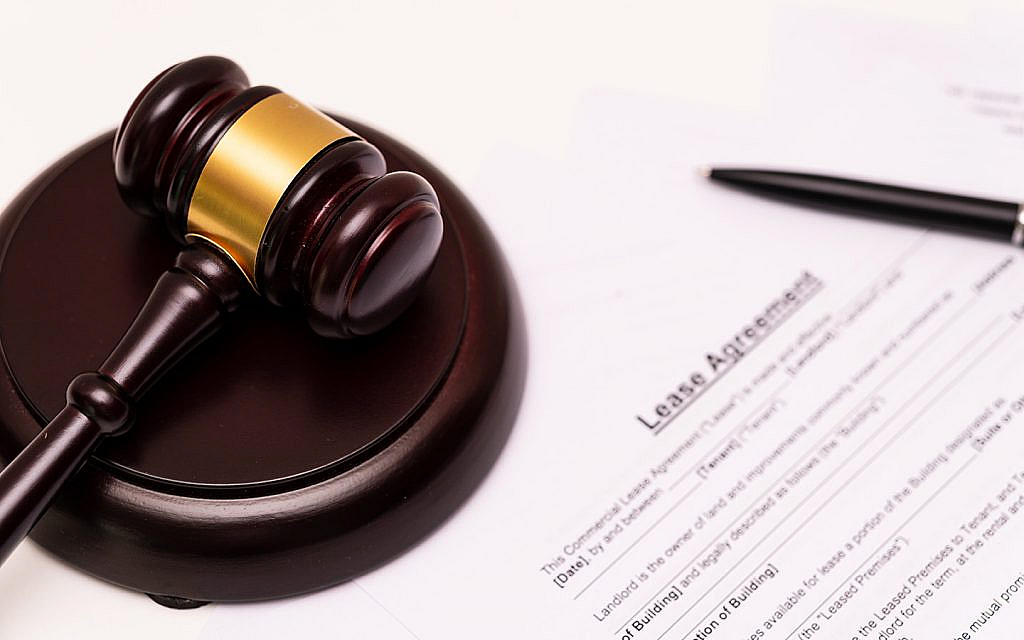Navigating Disputes in Commercial Tenancy Contracts in Dubai
Navigating the landscape of commercial tenancy contracts in Dubai can be a challenging endeavor, particularly when disputes arise. For both landlords and tenants, understanding the common issues that emerge in these agreements is essential to ensure smooth business operations and avoid unnecessary conflicts. This guide delves into the most frequent disputes that occur in commercial tenancy contracts in Dubai, their causes, and actionable strategies for resolution.

Common Disputes in Commercial Tenancy Contracts in Dubai
1. Rent Increases Beyond Legal Limits
One of the most common disputes in commercial tenancy contracts revolves around rent increases. The Real Estate Regulatory Agency (RERA) has established specific guidelines dictating how much landlords can increase rents based on market conditions. Despite these regulations, disputes often arise when landlords attempt to raise rents beyond the legal limits or fail to provide proper notification.
Resolution:
- Tenants should familiarize themselves with RERA’s rental regulations to understand what constitutes a legitimate rent increase.
- Using RERA’s rental calculator can help tenants verify whether proposed increases align with the guidelines.
- If a landlord imposes an illegal rent hike, tenants can file a complaint with RERA’s Rental Dispute Settlement Centre (RDSC).
2. Security Deposit Disputes
Security deposits are a standard requirement in commercial tenancy contracts, designed to cover potential damages or unpaid rent. Disputes often arise when landlords withhold part or all of the deposit at the end of the lease, citing damages that tenants believe fall under normal wear and tear.
Resolution:
- Tenants should document the property’s condition at both move-in and move-out through photos or videos.
- Clear communication between landlords and tenants about deductions is essential to avoid misunderstandings.
- If disagreements persist, tenants can escalate the matter to the RDSC for mediation.
3. Property Maintenance Responsibilities
Disagreements about maintenance responsibilities are another frequent issue. Typically, landlords handle major repairs, while tenants take care of minor maintenance. However, disputes can arise due to ambiguities in defining major versus minor repairs.
Resolution:
- Lease agreements should clearly outline maintenance responsibilities for both landlords and tenants.
- In cases where maintenance disputes arise, tenants can report unresolved issues to RERA.
4. Late Rent Payments
Timely rent payments are a cornerstone of any commercial tenancy contracts. Failure to pay rent on time is a serious breach of contract and can lead to eviction proceedings. Persistent late payments often result in legal disputes.
Resolution:
- Lease agreements should clearly specify payment terms, including deadlines and penalties for late payments.
- Open communication between tenants and landlords about financial challenges can help prevent escalation.
5. Eviction Disputes
Eviction disputes occur when landlords attempt to terminate leases before expiration, often due to non-payment of rent or other breaches of contract. Tenants may contest such actions if they believe eviction procedures were not properly followed or if they dispute the alleged breaches.
Resolution:
- Landlords must adhere to the legal procedures for eviction, including providing adequate notice as stipulated in the lease agreement.
- Tenants facing eviction should seek legal counsel to understand their rights and contest eviction notices through the RDSC if necessary.
6. Lease Termination Issues
Lease termination is another area where disputes frequently arise. Conflicts can stem from disagreements over notice periods, early termination clauses, or misinterpretations of lease terms.
Resolution:
- Both parties should thoroughly review the lease’s termination clauses to ensure compliance with all conditions for ending the agreement.
- Proper documentation and mutual agreement can help resolve disputes amicably.
7. Utility Bill Disagreements
Utility bill disputes arise when lease agreements fail to clearly define who is responsible for paying utility costs. This lack of clarity can lead to conflicts over unpaid bills or unexpected charges.
Resolution:
- Lease agreements should explicitly outline the responsibilities for utility payments and how these costs will be calculated.
- Clear communication about utility billing processes can prevent misunderstandings.
8. Use of Premises Violations
Disputes over how leased spaces are used often occur when tenants unknowingly violate restrictions imposed by landlords. Landlords may claim that tenants’ activities go beyond what was agreed upon in the lease.
Resolution:
- The lease agreement should explicitly define the permitted uses of the property.
- Tenants should seek clarification on any restrictions to avoid unintentional violations.
9. End-of-Tenancy Disputes
As leases end, disputes may arise concerning property conditions upon handover, final utility bills, or cleaning responsibilities. These conflicts can delay the return of security deposits or create additional financial burdens.
Resolution:
- Conducting a joint inspection of the property before vacating can help clarify the condition of the premises and identify any necessary repairs.
- Tenants should ensure that all financial obligations, including utility bills, are settled before vacating.
10. Breach of Contract by Either Party
Breach of commercial tenancy contracts disputes occur when one party fails to fulfill their obligations under the lease agreement. Common breaches include unauthorized subletting, failure to maintain the property, or misuse of the leased premises.
Resolution:
- Promptly addressing breaches through open communication can prevent conflicts from escalating.
- Seeking legal advice may be necessary if breaches persist without resolution.
How to Resolve Commercial Tenancy Contracts Disputes in Dubai
1. Direct Communication
Open dialogue is often the most effective way to resolve disputes. Both landlords and tenants should approach conflicts with a willingness to listen and negotiate.
2. Mediation Services
If direct communication fails, mediation services offered by the RDSC can provide a neutral platform for resolving disputes. Mediation is a cost-effective alternative to litigation.
3. Legal Recourse
When mediation does not resolve the issue, either party may need to pursue legal action. The RDSC specializes in rental disputes and provides binding resolutions based on Dubai’s tenancy laws.
4. Documentation
Maintaining comprehensive documentation throughout the tenancy is crucial. Records of correspondence, payment receipts, property condition photos, and signed agreements can serve as valuable evidence during disputes.
Preventing Disputes in Commercial Tenancy Contracts
- Draft Clear Lease Agreements: A well-written lease agreement that outlines all terms and responsibilities can prevent most disputes.
- Stay Informed About RERA Regulations: Both parties should be familiar with tenancy laws and guidelines.
- Maintain Open Communication: Establishing a strong landlord-tenant relationship can make it easier to address potential conflicts early.
- Document Everything: Keeping records of all interactions and transactions can provide clarity and support during disputes.
Conclusion
Understanding the common disputes that arise in commercial tenancy contracts in Dubai and their resolutions is essential for fostering a positive landlord-tenant relationship. By being proactive, informed, and communicative, both parties can mitigate conflicts and ensure a successful tenancy. Whether dealing with rent increases, security deposits, or lease terminations, addressing issues promptly and amicably can save time, money, and stress.
For additional guidance on commercial tenancy contracts, consult RERA or seek legal advice to navigate the complexities of Dubai’s rental market effectively.
Frequently Asked Questions : Commercial Tenancy Contracts
Q1: What should I do if my landlord raises my rent beyond legal limits? A1: Review RERA’s rent increase guidelines and use the RERA rental calculator. If the increase exceeds the limit, file a complaint with the RDSC.
Q2: How can I protect my security deposit? A2: Document the property’s condition with photos or videos at move-in and move-out. Address any agreed-upon repairs before vacating.
Q3: What happens if I miss a rent payment? A3: Missing a rent payment is a breach of contract and can lead to eviction proceedings. Communicate with your landlord to discuss possible solutions.
Q4: Can I contest an eviction notice? A4: Yes, contesting an eviction notice is possible if proper procedures were not followed. Seek legal advice and present your case at the RDSC.
Q5: How can I avoid disputes over property maintenance? A5: Ensure your lease agreement clearly outlines maintenance responsibilities and maintain open communication with your landlord about any issues.necessary.
Mazen Alzoubi – Commercial Consultant
Other Useful Links








